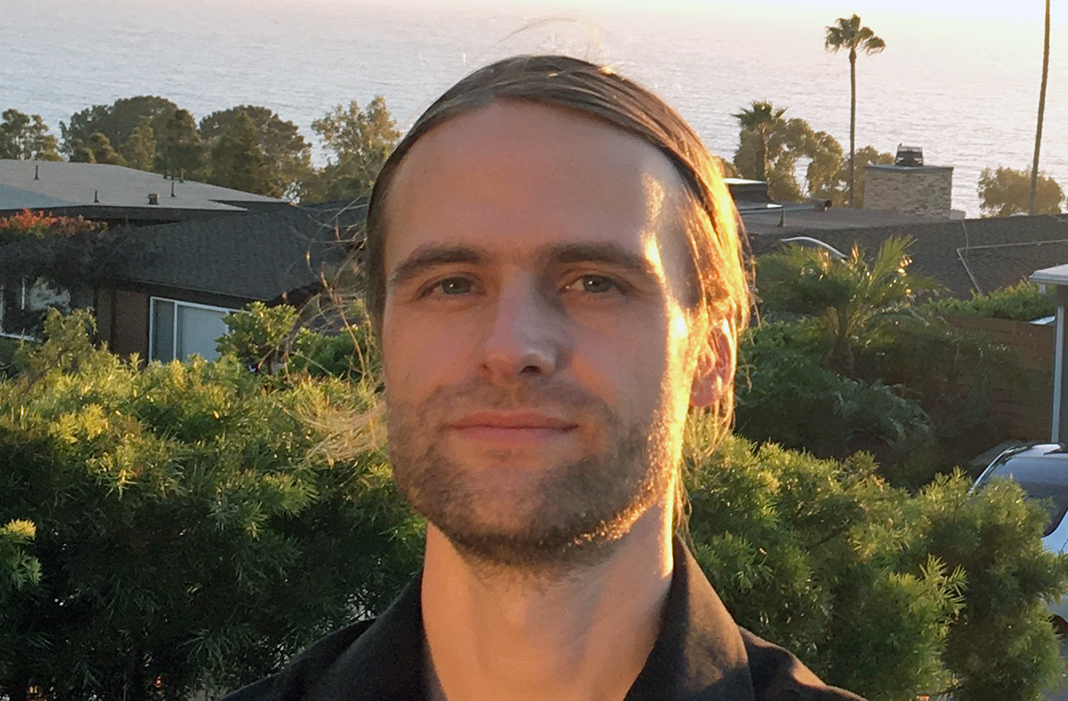From Physics to Nanostructures - meet Alexander Grötsch

Alexander Grötsch has been appointed to assistant professor in solid mechanics with specialisation in bio-based nanostructured materials. He talks about his path to KTH, a journey that took him across the world and through various fields of science, from studying the basics of physics to exploring cutting-edge materials.
Could you describe your path to becoming an assistant professor at KTH?
"My career journey has been very interdisciplinary, starting with physics at the University of Cologne, focusing on solid state physics, and moving to quantum nanoscience at the Forschungszentrum Jülich. My PhD in Edinburgh blended mechanical and biomedical engineering with medical physics, studying bone tissue mechanics at micro- and nanoscales. This period included travels, especially for experimental work at the European Synchrotron Radiation Facility (ESRF) in Grenoble. Post-PhD, at EMPA (ETH Domain), I delved into architected meta-materials, contributing to materials that outperform traditional ones through inner architecture inspired by nature. Later, at the University of California, I joined a cutting-edge interdisciplinary project across several universities including Caltech and MIT, which also helped me to expand my academic network. Challenges mirrored those in academia, i.e. mobility and temporary positions until securing a faculty role. But the demanding flexibility also offered unique opportunities to explore research cultures worldwide, promoting an open-minded worldview."
What is the focus of your research now?
"My research at KTH will mainly circle around bio-based nanostructured materials while extending towards bio-inspired architected meta-materials. The main focus will be the micro- and nanoscale. The work will cover aspects of applied and solid mechanics as well as microscale additive manufacturing, that include the theoretical formulation, experimental characterization, modelling and simulation of structure-mechanical properties. My experiments often make use of in situ approaches including those at the Swedish synchrotron MAX IV in Lund.
My position is affiliated with the Wallenberg Wood Science Center (WWSC) and the Treesearch consortium, directed towards the use of sustainable materials. In the coming month, I will become an affiliated faculty member of Digital Futures at KTH which underlines the increasing focus on Artificial Intelligence (AI). I also recently became a member of the EU COST action MecaNano, a European network for the mechanics of matter at the nanoscale."
What advice would you give to young researchers?
"One of my main motivations to pursue a career in academia is the creative freedom that comes with it. It is very liberating to formulate your own research idea and get funding for it, even if it is just a short proposal for a synchrotron experiment. This positive feedback can keep you motivated. An advice I could give, and what I realized while working in different countries, is to choose your career steps strategically. KTH is one of the leading technical universities in Europe, thus a degree from KTH is already a good choice. But staying with one of the renowned universities in the US will often accelerate your career prospects. Sometimes this can already be done as part of a visiting scholarship during your graduate studies. In general, it is a good idea to spend at least some parts of your career away from your home institution, not only for your professional but also for your personal development."
What do you do when you are not a researcher?
"I'm deeply interested in music, both as a record collector and a creator, using analog equipment. Some years ago, I've merged my passion for music and science in a synchrotron data-based video, which is part of a scientific publication, and which was also used for outreach and education. My hobbies often shift with the country I live in, from Rugby in Scotland to snowboarding in Switzerland, and surfing in California. In Sweden, I'm currently exploring new activities, but so far I only tried Nordic ice skating.”
